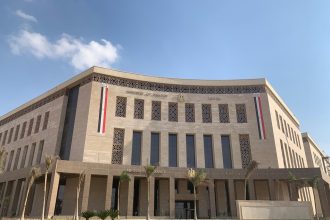
(AFP PHOTO/STRINGER)
Egypt has said that it pays no attention to remarks made by Turkish Prime Minister Recep Tayyip Erdogan, who said recently his government would not recognise “a regime that has undertaken a military coup”.
Official spokesman for the foreign ministry Badr Abdelatty said on Friday that the remarks “do not deserve a response or worth paying attention to”.
Erdogan’s most recent comments on Egypt came in a recent interview with Al Jazeera English, during which he reiterated his view that former President Mohamed Morsi was ousted by way of a military coup.
“As the AK Party [the ruling part in Turkey] government, we cannot accept a regime that has undertaken a military coup,” said the Turkish prime minister. He continued: “If this military coup was done by someone else we would not recognise them either.” He also described Minister of Defence Abdel Fattah Al-Sisi as a “coup maker” and said the upcoming presidential elections in Egypt “are already questionable”.
Abdelatty dismissed Erdogan’s remarks: “The voice of the Egyptian people is the source of legitimacy and it is their will that determines the future of the nation and to choose their leadership.”
Al-Sisi is yet to officially announce whether he will run in Egypt’s presidential campaign, despite receiving endorsements from Egypt’s Supreme Council of the Armed Forces and most recently, Russian President Vladimir Putin.
Erdogan has been vocal in his opposition to the removal of Morsi as president in July 2013. The series of statements culminated in the downgrade of diplomatic ties between Egypt and Turkey in November last year. The foreign ministry has repeatedly warned Erdogan against interfering in Egypt’s internal affairs through his statements. In the Al Jazeera English interview the Turkish leader said that he never had any intention of interfering in Egypt’s affairs, adding: “This is just something the autocratic regime of Egypt say of those who do not recognise them.”
During Morsi’s presidency, ties between Cairo and Ankara strengthened, both politically and economically. The two countries coordinated positions on international issues, such as Syria and the Middle East peace process. About 27 bilateral cooperation agreements covering various areas, including tourism, business and trade were signed in November 2012 as well as a cumulative $2bn support agreement to help support Egypt’s ailing economy.



